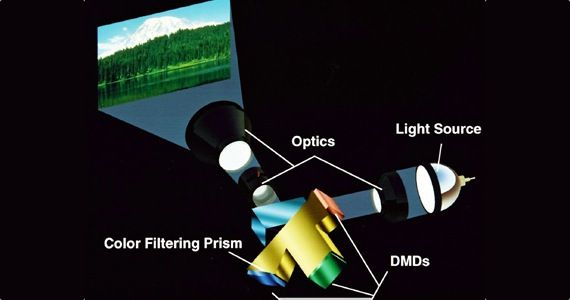Reading about the 48FPS version of The Hobbit that will be released in a fraction of U.S. theaters next month, a thought occurred to me: Aren't we paying just a little bit too much attention to this kind of thing?
While I understand the technical explanation of what makes the 48FPS version of The Hobbit: An Unexpected Journey superior to the 24FPS version, I'll admit to some suspicion about whether I'll actually be able to tell the difference. That could just be me, of course; I am, after all, someone who isn't convinced that my HD television is significantly better than regular television for my viewing purposes -- note: I do, occasionally, take off my glasses while watching television at night -- and is particularly resistant to change.
Nevertheless, it feels as if technology is speeding up the pace at which the technical quality of the movies we watch is "improving," even if it's by small increments; frame-rate increases, cleanliness of digital prints versus film, stereoscopic projection and so on. Every year, it seems, we have a new and better way of watching movies, and every year, I wonder whether or not each improvement actually changes the experience of watching movies enough to be worth all the bells and whistles.
This is where we get to the "grumpy old man" portion of the evening, of course, but … there are very few people for whom the moviegoing experience is actually about the technical limitations of the medium. What actually matters are the movies themselves, and the heart and soul that their creators put into them; otherwise, we'd be looking at a world where Journey to the Center of the Earth 2 was considered a better movie that The Thin Man, purely because it has better special effects and was shot digitally. All of the technical advances are surface matters that, ultimately, may be clear to the eye but are meaningless to the actual quality of the movie - and, once the big things are off the table (Sound! Color! Surroundsound! Believable special effects! And … um, maybe that's it?), everything else falls into the "well, it'd be nice, but is it really going to change anything important?" phase, surely.
Which is to say: Whether a movie is in 24 or 48 frames per second, whether it is shown in IMAX or 3D or both -- how much of any of that is important if the movie itself isn't good? We're in danger of making the technical specs of a movie as important as the writing, acting or direction, and that seems backwards to me. But now that this particular genie is out of the bottle, can we ever go back to a time when the only people who knew about this kind of thing were the people whose jobs is was to know?

